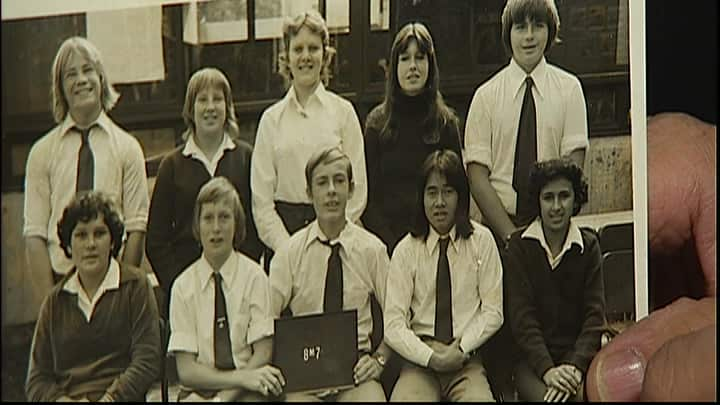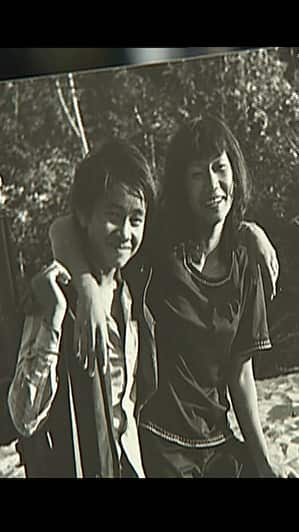A Hmong ballad fills a garage in suburban Melbourne.
All the band members are from the Hmong Melbourne Youth Society.
It's a very different sound from the one that haunts SBS Radio's Hmong broadcaster, Malcolm Vue.
"All I heard was just a ringing in my ears. All I can hear is this loud 'bing' in my ear."

It's a memory from his childhood in Laos that more than 40 years on has never left him.
Malcolm Vue was out searching for food with his young brothers when the basket he was carrying became too heavy - so he stopped to take a break.
“We were walking in a line and I was the first one."
It was a regular ritual for the family, but this day was one that changed his life forever.
"We were sort of walking half-way up to a little flat bit and the basket was quite heavy so we come to these big huge trees and I decided that it's too heavy, I am going to slow down and stop for a minute before we get a move on, and that's when everything just went blank."
Landmines were part of the landscape of 1960s Laos during the Vietnam war.
"I heard my brothers calling out, saying 'I hurt I hurt, help me, help me'. And I didn't know what to do so I said where are you? Because at the time I am losing so much blood that it's sort of like a dream and I say, where are you?
One of his brothers said he was behind him, but when Malcolm tried to get up to go to his brother, he fell down.
"I couldn't work out what was wrong with me. So I looked down at my foot and then I realised it was just a piece of skin, was just hanging there with my foot still attached to it."

Malcolm Vue lost his leg. His brothers lost their lives.
"It has been stamped into your brain and it just stays there and it doesn't matter how much you try to get it off, it just stays there and it's as fresh as yesterday."
Alone, a teenager, separated from his family due to the war, he was brought to Australia by an Australian man he met in Laos.
Settling with the man's family in Adelaide, Malcolm Vue was one of just a few Asian children in his school.
"All the kids would come around and pinch my fingers, look at my hand, pinch my skin, look at my eyes, pull my hair and make sure I was real."

That was in 1974.
Since then, Malcolm Vue and around 2,000 other Hmong speakers now call Australia home.
Their traditional homelands lie mainly in Laos, China, Thailand and Vietnam.
Some historians believe the Hmong people were originally from China.
The language, which has no official status in any of the countries where it's spoken, uses at least four writing systems with a Latin-based script being the most common.
Hmong was introduced into the SBS Radio schedule for the first time in 2013 - an important moment for this close-knit group.
Music plays a part in maintaining the language for young Hmong-Australians.
Mena Lor is the Vice President of the Hmong Melbourne Youth Society, which also has a band.
"Singing in Hmong is like entertainment as well. We're encouraged to speak Hmong. Being able to sing in Hmong has helped me and a lot of young people to understand the words, to learn and to read and write."
Band member Anita Vue said one of the biggest challenges Hmong-Australians faced was explaining exactly who they were.

"The hardest question anyone would ask you is, 'So what's your nationality?'
"And it's so hard to explain what Hmong is. From that question it goes on to ... I don't know what Hmong is. It's like trying to explain to somebody a new planet."
SBS Broadcaster Malcolm Vue agreed that most Australians knew little about Hmong culture.
"They never heard of you. I've heard all the time, 'Who are you?'.
"I say, 'Hmong'.
'Where do the Hmong come from?' and then I say 'Laos'.
Where's that? And then I have to go 'Thailand'. That's when they go 'Thailand, oh I know, Thailand' but I say: 'We are Hmong from Laos, yeah'."
President of the Hmong Melbourne Youth Society Justin Saykao says the groups helps to keep the community connected.
"Even though the community is very small, we are extremely close. A lot of the families help each other. At times of need, such as funerals, everyone chips in to make sure all the traditions are followed."
